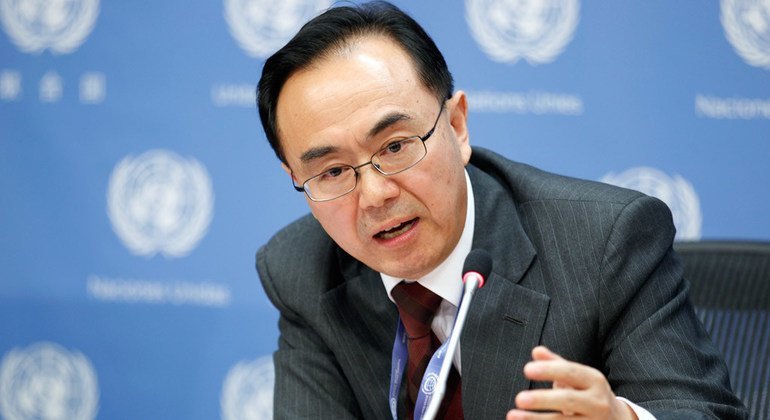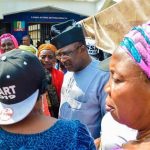It is truly amazing that Nigerians live each day, inundated with statistical obfuscation, about the alleged growth that Obasanjo’s economic team is said to have achieved with the Nigerian economy. The utterly reactionary Finance Minister, Ngozi Okonjo-Iweala was on television on Tuesday might, at the THISDAY town hall meeting, telling us how much they have achieved in the past three years. Just last week though, the Manufacturers Association of Nigeria (MAN) came out with a different set of statistics, which be-lie the chest beating of the agents of imperialism of the economic team of the Obasanjo administration. The MAN report, according to THE GUARDIAN newspaper of Thursday, June 1, 2006, says that “the fortunes of the real sector of the economy, which…. witnessed tremendous growth in post-independence Nigeria, has fallen back to the unimpressive growth rate in the pre-independence era.” The MAN report says that unless immediate steps are taken, their companies now operating far below installed capacities, would join those already out of production, the survey “compares developments in the sector during the military era and the return to democratic governance in 1999, the operators concluded that they fared better under the military regime.” MAN said that “only 10 percent of manufacturing companies in the country are currently in operation, with a capacity utilization of 48.8 percent”. It further said that 60 percent of the companies are comatose while another 30 percent have closed shop. “Consequently, the sector’s contribution to the nations Gross Domestic Product (GDP)… had dropped from 8.2 percent in 1990 to 4.7 percent in 2003″. According to the MAN report, “at independence in 1960, the contribution of the manufacturing sector to Gross Domestic Product was 3.8 percent. Notwithstanding the growing contribution and dominance of the oil sector since the 1970s, the manufacturing sector recorded impressive performance and contributed on the average of about 9.9 percent, while from 1975-1981, industrial capacity utilization was consistently above 70 percent mark.” But what is the picture, with the ‘magical wand’ of the economic team’s neo-liberal capitalism and surrender to imperialism? According to MAN, “the story today is different. The sector is back at the independence level. The manufacturing sector contributed 4.7 percent to GDP while industrial capacity utilization dropped to a paltry 48.8 percent”. The report went further to list food, beverages and tobacco sub-sector, leather, pharmaceutical and house hold sub-sectors as those operating at sustainable levels; while the textiles, vehicle assembly, cable manufacturers, paints, steel and petrochemicals are described as ailing. As we noted here last week, the MAN survey says that only 45 companies in the textile sub-sector were still in operation, with a 64 percent reduction from the 124 companies operating in 1994. The sector that used to be the second largest employer of labour, after government “had witnessed a 64 percent reduction in the size of its workforce over the last nine years … in the tailoring and garment sub-sectors, more than one million other persons whose jobs are linked to the textile industry, such as traders and cotton farmers have lost their means of live-hood as a result of the closures”. These really disturbing statistics reflect the actual effects of the policies that the Obasanjo regime’s economic team has foistered on our country. The whole sale adoption of neo-liberal capitalism, has led to a gradual de-industrialisation of Nigeria. Of course they argue that new jobs are being created, such as the vendors of GSM cards that accost us at traffic lights or the petty traders selling the mass produced goods of the big capitalist concerns of Europe, America and Asia. Unfortunately, a “shopkeeper’ capitalism does not help to develop the production forces of any country. But this shop keeper mentality is implicit in the economic choices of the Obasanjo administration. National independence and sovereignty can be enhanced only when the state consciously directs investment into the productive sectors of the economy, this strategic level of investment cannot be achieved through a deformed, weak and comprador private sector as Nigeria has, neither can the crony capitalism of the transcorp variety, provide a bases for national development. It just does not work that way; unfortunately, the team that is driving the process today is so fixated with being part of the flow of the globalised capitalism that is eroding the entire fabric of our national productive base. They are more concerned with getting dubious ratings from imperialist agencies, fulfilling support


